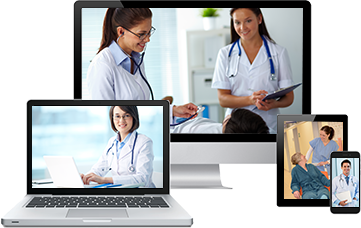The intersection of software development and healthcare has resulted in innovative solutions that are transforming patient care in an era of rapid technological advancement. When combined, these two domains are bringing about a revolution that goes well beyond a straightforward merger, bringing in a new era of effectiveness, accessibility, and improved results. This article explores the ways that healthcare software development is altering patient care and overall healthcare management, and it does so by delving deeply into the enormous effects that it has had on the medical business.
The Evolution of Healthcare Software Development:
The journey of Healthcare Software Development is a testament to the ever-evolving nature of technology. The industry has seen a paradigm transition from the antiquated systems of the past to the modern, smart alternatives.
The process of creating and deploying software that is especially tailored to satisfy the unique needs of the healthcare industry is known as healthcare software development. These systems aim to simplify workflows, preserve data securely, and enhance overall patient care. Numerous fields, such as telemedicine, diagnostics, electronic health records (EHR), and more, can benefit from these developments.
Enhancing Patient Care through Innovative Solutions:
Improving patient care is one of the main areas where Healthcare Software Development has had a big influence. Traditional paper-based records have been superseded by Electronic Health Records (EHR), the foundation of contemporary healthcare software, which provides a comprehensive and user-friendly digital repository of patient data. This lowers the possibility of mistakes and makes it easier for healthcare practitioners to exchange information in an efficient manner.
Efficiency and Streamlined Operations:
Healthcare Software Development excels in optimizing the operational aspects of healthcare institutions. The administrative burden on healthcare professionals is decreased by the seamless integration of administrative chores, appointment scheduling, invoicing, and inventory management into software systems. Consequently, this enables healthcare providers to commit more time to patient care.
Furthermore, artificial intelligence (AI)-enabled software solutions are being used for diagnosis. These systems analyze vast datasets to identify patterns and trends, aiding healthcare professionals in accurate and timely diagnoses.
Data Security and Compliance:
As the healthcare industry transitions to a digital framework, the importance of data security cannot be overstated. Healthcare Software Development prioritizes the implementation of robust security measures to safeguard sensitive patient information. Stringent encryption protocols, access controls, and regular security audits are integral components of these software solutions, ensuring compliance with privacy regulations and maintaining the trust of patients.
Challenges and Opportunities in Healthcare Software Development:
While Healthcare Software Development presents a multitude of opportunities, it also comes with its own set of challenges. Interoperability, the seamless exchange of information between different software systems, remains a significant hurdle. Standardization efforts are ongoing to create a cohesive framework that allows different healthcare applications to communicate effectively, promoting a more integrated and patient-centric approach.
The rapid pace of technological advancements also poses a challenge in terms of keeping healthcare software systems up-to-date. Continuous research and development are essential to ensure that these systems not only meet current industry standards but also have the flexibility to adapt to future innovations.
The Future Landscape:
Looking ahead, the future of Healthcare Software Development holds immense promise. A increasingly networked and data-driven healthcare environment is anticipated as a result of the continued integration of Internet of Things (IoT) devices into healthcare systems. IoT in healthcare has the potential to revolutionize patient care through wearable vital sign monitoring devices, smart medicine dispensers, and remote patient monitoring, to name just a few applications.
Not only will artificial intelligence be essential to diagnostics, but also to predictive analytics and tailored therapy. Machine learning algorithms will analyze vast datasets to identify trends, enabling healthcare providers to anticipate and address health issues proactively.
Additionally, there is a growing trend toward the democratization of healthcare through mobile applications. Through the provision of individualized health information, medication reminders, and fitness tracking, mobile. Health apps enable people to take charge of their health. This move toward patient-centered care is consistent. With Healthcare Software Development’s primary objective, which is to improve people’s quality of life.
Conclusion:
In conclusion, the paradigm shift brought about by Healthcare Software Development is nothing short of revolutionary. The marriage of healthcare and technology has given rise to solutions that not only streamline processes and improve efficiency but also prioritize patient care in unprecedented ways. As we navigate the ever-evolving landscape of healthcare. The role of software development will remain integral, continually pushing boundaries and coding wellness into the very fabric of our healthcare systems.









